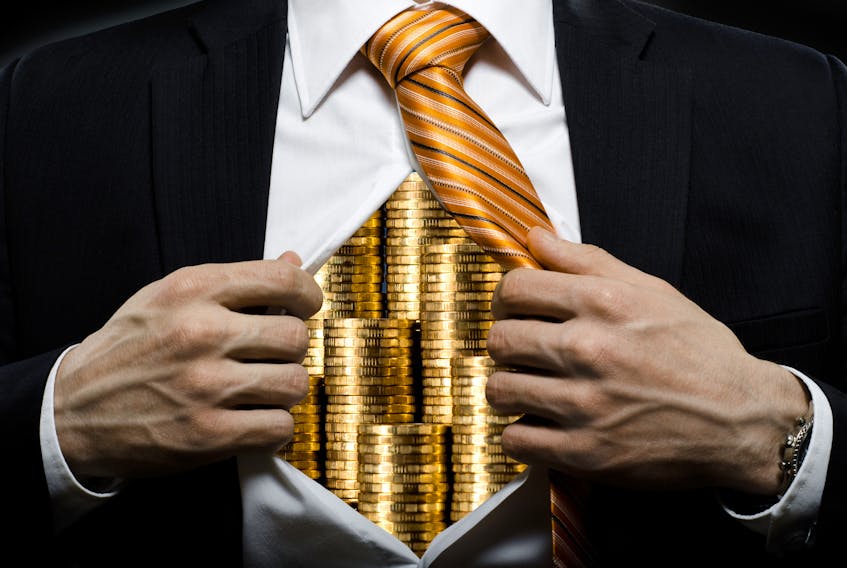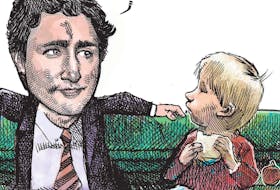
Those poor misunderstood billionaires. They can’t get any respect.
Oh and don’t call them billionaires.
At least one high-profile billionaire, hoping to be president of the United States, is indignantly taking profound offence to the description. Who knew billionaires were such a thin-skinned lot?
Howard Schultz, the former CEO of Starbucks, who has an estimated worth of some $3.4 billion nearly broke the internet when he told a reporter that he preferred not to be called a billionaire, but rather a person of means or a person of wealth.
The term billionaire apparently is now derogatory. Who knew?
It does remind everyone who isn’t a billionaire that this staggering concentration of wealth is counter to the public good, unfair, and the result of broken economic and tax systems.
Shultz has been speaking against a proposal from Congresswoman Alexandria Ocasio-Cortez who is advocating for a 70 per cent tax rate on income over $10 million as part of her Green New Deal.
She is making the billionaire class very nervous.
That’s because her idea has not been greeted with the derision we have come to expect when someone recommends taxing the rich.
Instead, plenty of experts, economists and others are giving her proposal support, reminding us that in the not-too-distant past, the United States had a marginal top tax rate that was even higher than 70 per cent. The sky didn’t fall.
In addition, and most importantly, her proposals have taken hold among average people and voters. Ocasio-Cortez has struck a nerve.
It’s not just Shultz steadfastly defending billionaires.
Bill Gates who for many years topped the richest-man list — before being replaced by Jeff Bezos — has also jumped into the fray to justify philanthropy and debating whether government should tax capital and wealth. Those debates often end with a “be careful governments.”
“The idea that there shouldn’t be billionaires — I’m afraid if you really implemented something like that, that the amount you would gain would be much less than the amount you would lose,” Gates said in a recent interview with Forbes. In other words, keep the status quo politicians.
But what about billionaires who are billionaires 10, 15, 20 and 100 times over? How does this serve the public good?
Then there’s the Dutch historian who just blew the lid off of the World Economic Forum.
Rutger Bregman supremely ticked off plenty of powerful people when he told the Davos elites they need to stop talking about philanthropy and start talking about taxes.
These comments were without a doubt directed at people like Gates and the fabulously rich who arrived at Davos in their private jets and pat themselves on the back for all their good deeds.
What’s clear is the super-rich are feeling defensive.
And that doesn’t happen often. Hardly ever.
The Washington Post in a story about Gates and his defence of philanthropy versus higher taxes on billionaires noted: “The latest criticisms are more existential, challenging whether their level of wealth is good for society and whether it’s functional to rely on the generosity of the very rich to fix its problems.”
This is a conversation very much worth having.
Anand Giridharadas, a political analyst, journalism professor at New York University and author, regularly challenges the gross accumulation of wealth and what he calls “cosmetic do-gooding” by the billionaire class.
“Rather than rely on scraps from the winners, we must take on the grueling democratic work of building more robust, egalitarian institutions and truly changing the world,” he writes in his latest book Winners Take All.
He recently tweeted a comment from an informant who works for one of the U.S.’s top companies. “The only thing that can be trusted in this era of financialization is that companies will primarily act for profit, so other forces must be empowered to combat, counterbalance, and curb this."
Instead as governments flounder and fail to deal effectively with growing inequality, the problem worsens.
For example, a new study by inequality economist Gabriel Zucman noted that as much as 10% of the world’s GDP is now held in tax havens.
In addition, wealth is highly concentrated with the top 10 per cent owning more than 70 per cent of the total wealth in China, Europe, and the United States. The bottom 50 per cent owns less than 2 per cent and the middle 40 per cent owns less than 30 per cent
If people are looking for something to be angry about, they need look no further than an economic system that ensures the so-called winners get such an obscene slice of the pie. And feel entitled to it.
An Oxfam report, released in time for the World Economic Forum, found that 26 of the richest billionaires own as much wealth as the 3.8 billion people who make up the poorest half of the planet’s population.
But it does feel like the inequality conversation is changing, gaining momentum. When billionaires have to take to the airwaves to defend themselves, something is happening.
The question is whether it will result in real and direct action.
Lana Payne is the Atlantic director for Unifor. She can be reached by email at [email protected]. Twitter: @lanampayne Her column returns in two weeks.
Previous column:









